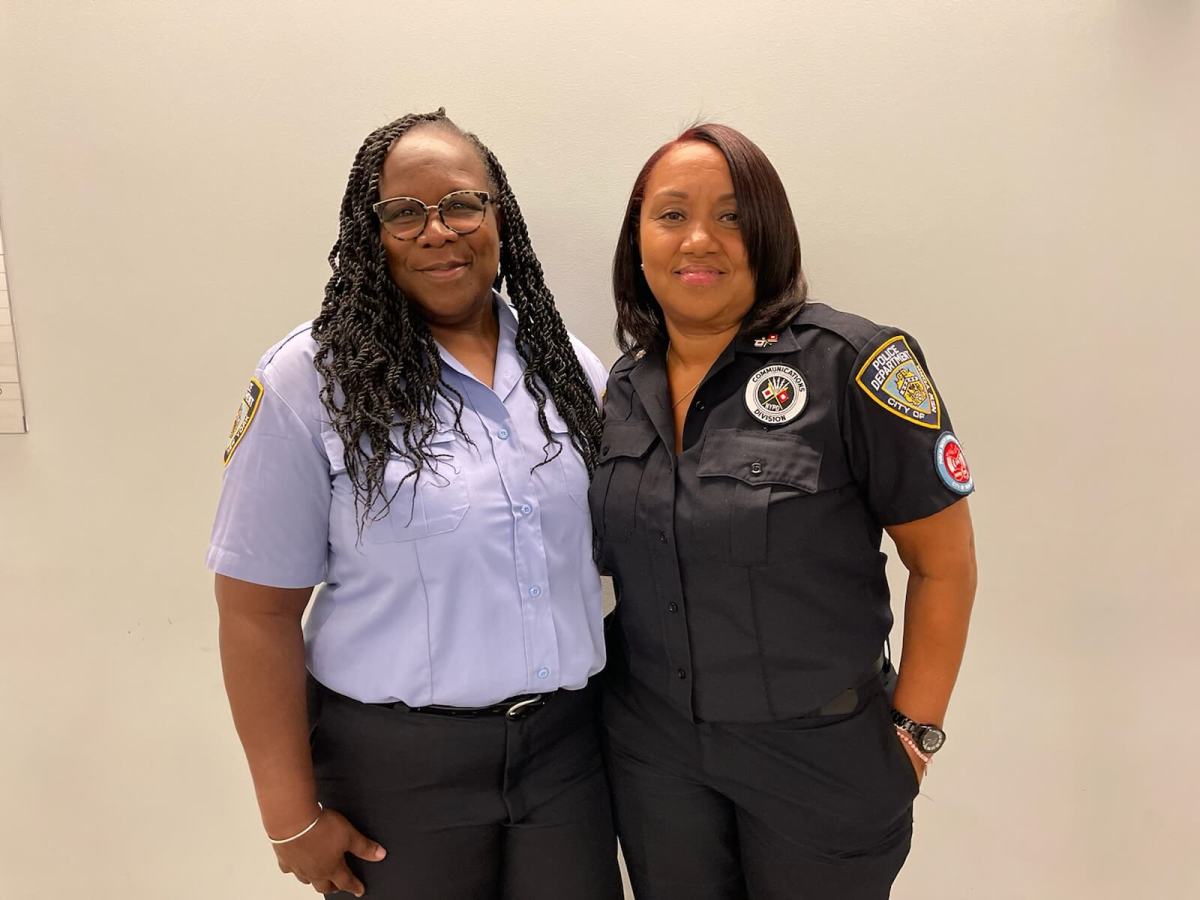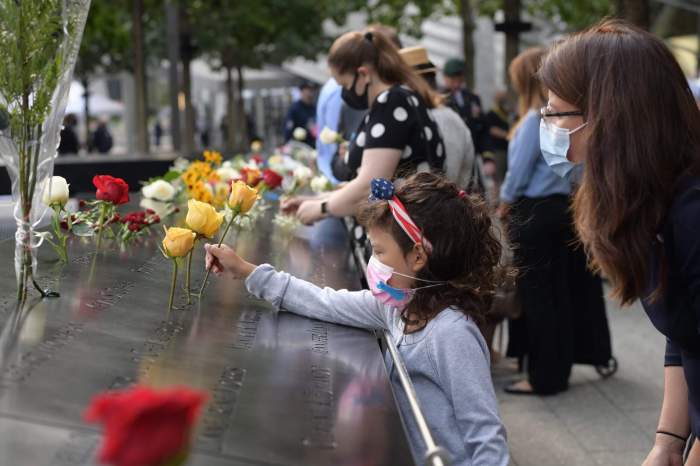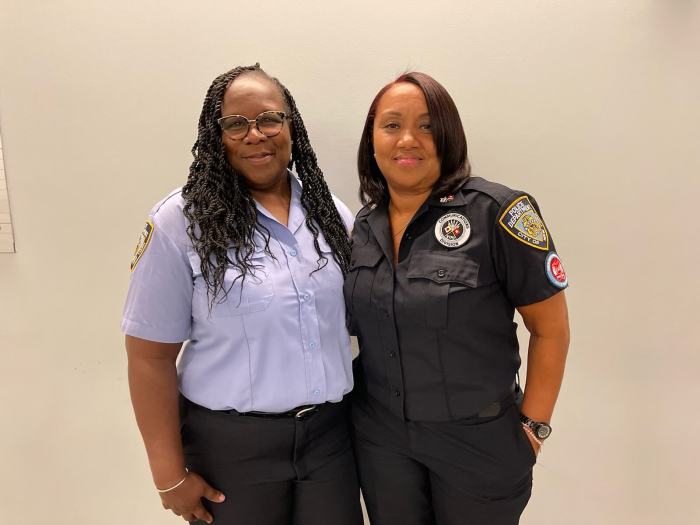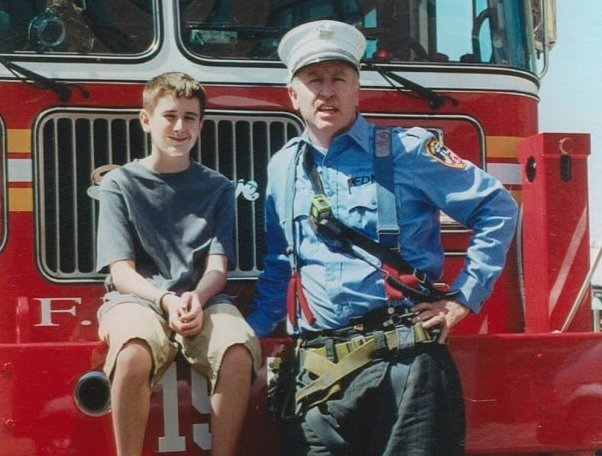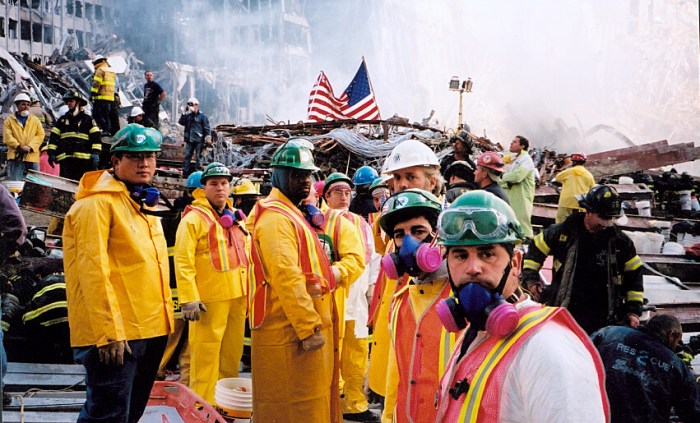Monique Brown, Natalie Wilson, and Rae Ann Singleton have a combined tenure at the NYPD that amounts to over 90 years of service. When they arrived at work on that bright, sunny morning on Sept. 11, 2001, they were already veterans in the field by a decade each.
They would need every moment of that experience to help them stay strong and get through the horrific events that followed. The terrorist attacks on the World Trade Center would also leave them living with anxiety over the next two decades.
Like many others who bore witness to that day of infamy, the events of Sept. 11, 2001 remains as fresh in the operators’ minds as if they had occurred only yesterday.
“We assumed a plane just crashed. We’re used to handling emergencies, so we just played it down. Everybody goes into the mode of getting everything done, getting the notifications out, getting everybody help that needs to be helped. So, at that time, that’s what we did, we jumped into this mode to where it’s an emergency—everything else goes out the window. We do our job, we make sure everybody else is okay,” Singleton explained.
With the full horror of the day not yet apparent, the trio focused their efforts on ensuring all services were correctly mobilized and communication was established throughout the chaos. Still, the police communications technicians told amNewYork Metro that the voices they heard on the other end of the line were the first indication that the destruction was more than a mere accident.
“You can tell something was really going on by the voice of the unit. We did our best to help them, I mean even police officers, they didn’t know what was going on either. We just all got into this mode of, you know, help, help. But from the voice… you know we can’t see them; we can only hear them. So, when they were talking with us, from their voices you knew something was really wrong. And then when the second plane hit, we became aware of what’s happening. And then there were people trapped in different places, cops were trapped in different places, calling us relying on us to help get them out of the buildings, things of that nature,” Brown said, adding that schools were being evacuated so responders kept a list as to where they were being held.
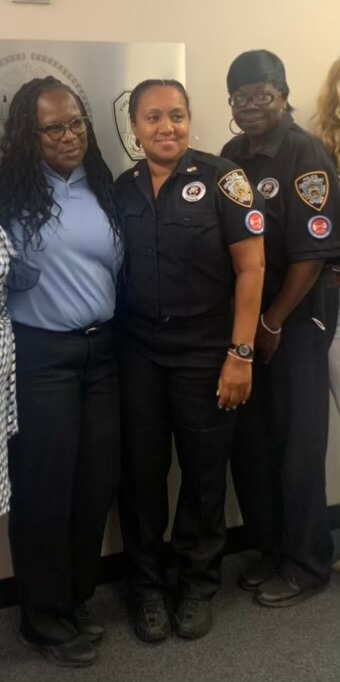
With pandemonium ensuing, it was the duty of the 911 operators to not only serve as the eyes and ears of first responders in the field, but to also help keep them calm during the greatest catastrophe they had ever witnessed.
Even so, despite maintaining unwavering professionalism throughout, panic and fear was erupting behind the scenes.
“My sister at the time was a New York City police officer. She was mobilized to that location. And when the buildings came down, she was one of the first cops that were injured. I called her and hadn’t heard back so I went back. … So, when I figured out that wow, a couple of hours have gone by and I haven’t heard from her something must be going wrong. So, I called the police at the station, and they told me that they lost track of her and four or five of her coworkers. So, I immediately started just like going over the radio with her name,” Brown said.
“I didn’t know anything; I broke down crying. They removed me from my position, some of the officers there, they just, started making phone calls, to see if we can find her. We eventually found her. She was one of the first cops that were injured and that were removed from the scene earlier in the day, and she was in Woodhull Hospital, and she was fine, but injured but fine. So that was very traumatic because I still have to dispatch. I still have to do all of those things, not knowing. And then when I find out that my sister is okay, thank God. Now I have to go back to work and finish up. Maybe 20 minutes, 30 minutes of ‘Okay, get yourself together. Go back to your seat and finish up the day,’” Brown added.
Like Brown, Wilson had almost lost a loved one. Driving a command bus, Wilson’s husband was showered with falling debris, cutting off all communication. Thankfully, he survived the attacks — and when the day was over, he was waiting for her.
“When I left the job that night, I was able to go home, give my daughter, give my husband a hug because now I feel complete and safe, but it also hurt me because a lot of people were lost and he said he knew he lost a lot of his customers on the bus because he never saw them again,” Wilson said.
What many did not see that day was 911 operators trying to remain calm for all of those around them, but inside a deep and unimaginable fear shrouded them not just for the uncertainty of the city but the whereabouts of their own family members. Some worked over 15 hours trying to help be that bridge of communication between first responders and the average citizen.
Even though two decades have passed since that emotional day, every 9/11 anniversary sends all three women into extensive bouts of PTSD. However, they rely on their family and on each other to get through the difficult time.
Although these silent heroines suffer daily with the weight of history, they carry it with pride. Through nerves of steel and patience, and quick wits, they kept many of their colleagues alive.



